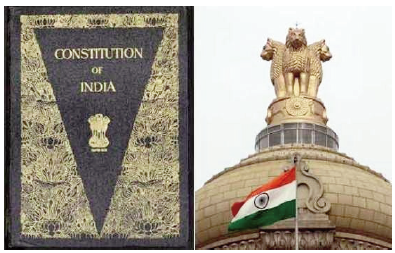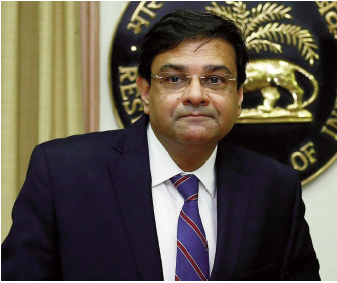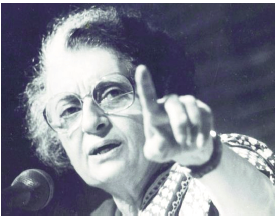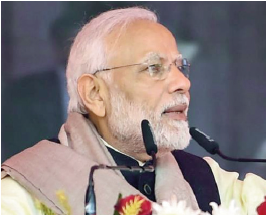Modi, follow not Indira !
Institutional autonomy in peril
 The steps provided for in the Constitution for an ideal
model of development within a somewhat
westernized framework is based on the pursuit of
four basic goals:
The steps provided for in the Constitution for an ideal
model of development within a somewhat
westernized framework is based on the pursuit of
four basic goals:
a) Promoting national integration and tackling the
intricacies of India’s diverse social structure.
b) Raising people’s standards of living at different levels
of income, including the poor, the disprivileged and
underprivileged sections, tribals and minorities.
c) Ensuring social equality
d) Strengthening the politico-economic-social
democratic instruments of governance.
These basic goals have had never a smooth sailing. Years
of the Janata establishment, as of Indira Gandhi’s Congress
before, have exposed the limitations of the Indian polity.
And, the sort of politics pursued has not only thrown up a
restless electorate but has given rise to wide-ranging socioeconomic
conflicts.
Amidst manipulative politics of the powers that be,
institutional erosion has followed, under the BJP-ruled
NDA leadership of Prime Minister Narendra Modi as well.
We are all familiar with the working of “caged parrot,”
called the CBI and now the RBI, the Central banking
authority, which recently saw the resignation of its
Governor Urjit Patel, just months before his term was to
end. This is an example of institutional erosion in the RBI
after 48 years.
 Urjit Patel
It is a harsh fact that democratic institutions tend to
decline and get eroded when things get politicized as part
of vote bank politics and undue emphasis is placed on
personalities, the loyalty factor, personal security as well as
the attempt is made to use the public realm for selfpromotion
and resolve personal or electoral matters. For
the past several months we have seen precisely this trend.
Urjit Patel
It is a harsh fact that democratic institutions tend to
decline and get eroded when things get politicized as part
of vote bank politics and undue emphasis is placed on
personalities, the loyalty factor, personal security as well as
the attempt is made to use the public realm for selfpromotion
and resolve personal or electoral matters. For
the past several months we have seen precisely this trend.
There has been too much stress on personalized
leadership, and too little on institutions, their integrity and
functional autonomy. This has not only led to sharp erosion
in the effectiveness and morale of crucial segments of the
apparatus of several institutions. It has also given rise to
arbitrariness and highly partisan interventions as in the
case of Urjit Patel of RBI vis-à-vis the Finance Ministry.
I honestly believe that institutional erosion in the face of massive social, economic and
political challenges facing the
country and the rising
expectations of the people is a
major crisis we are faced with
today. It must be said that the
distinctiveness of the Indian
model of nation-building lies in
strengthening powerful
institutional structures which
could moderate individual drives
and ambitions.
We are all familiar with the
working of “caged parrot” called
the CBI and now the RBI, the
Central banking authority,
which recently saw the
resignation of its Governor Urjit
Patel, just months before his
term was to end. This is an
example of institutional erosion
in the RBI after 48 years.
 Indira Gandhi
Broadly speaking, the main
features of this institutional
structure include a party
structure that derives its strength
from the grassroots, rules and
norms to guide the
administrative and judicial
system, socio-economic planning
machinery that derives its
thinking from the ground, backed
up a network of autonomous
institutions and voluntary bodies
operating at various levels of
society. An informed criticism
and debate are part of this viable
system.
Indira Gandhi
Broadly speaking, the main
features of this institutional
structure include a party
structure that derives its strength
from the grassroots, rules and
norms to guide the
administrative and judicial
system, socio-economic planning
machinery that derives its
thinking from the ground, backed
up a network of autonomous
institutions and voluntary bodies
operating at various levels of
society. An informed criticism
and debate are part of this viable
system.
Historically and culturally,
Indians have shown a remarkable
understanding of their plural
identities. The Indian secular
tradition has permitted
considerable ideological fluidity,
but with due stress on ‘an
ordering mechanism’. In a way,
this can be taken as an all India
tradition which of late seems to
be under strain.
 Narendra Modi
Regrettably, former Prime
Minister Indira Gandhi of the
Congress adopted a style that
threw the old institutional order
out of gear. She was unable to
replace it by a new structure.
Instead, she followed increasingly
personalized politics that
overlooked institutional
traditions as well as established
political norms. It is a pity that
the BJP-led NDA regime of
Prime Minister Narendra Modi
seems to be following the
footsteps of the late Prime
Minister Gandhi’s government.
Viewed on a larger canvas, it needs to be appreciated that the
main thrust of our founding
fathers of the Constitution was to
ever create a unified system
sensitive to the country’s
changing social and economic
realities . It is a model for
building unity amidst diversities.
It also aims at moderating
ideologies, politico-bureaucratic
and personal power through
pressures from below. But the
system today is in a period of
crisis in the absence of values,
norms of behaviour and rules of
governance.
Narendra Modi
Regrettably, former Prime
Minister Indira Gandhi of the
Congress adopted a style that
threw the old institutional order
out of gear. She was unable to
replace it by a new structure.
Instead, she followed increasingly
personalized politics that
overlooked institutional
traditions as well as established
political norms. It is a pity that
the BJP-led NDA regime of
Prime Minister Narendra Modi
seems to be following the
footsteps of the late Prime
Minister Gandhi’s government.
Viewed on a larger canvas, it needs to be appreciated that the
main thrust of our founding
fathers of the Constitution was to
ever create a unified system
sensitive to the country’s
changing social and economic
realities . It is a model for
building unity amidst diversities.
It also aims at moderating
ideologies, politico-bureaucratic
and personal power through
pressures from below. But the
system today is in a period of
crisis in the absence of values,
norms of behaviour and rules of
governance.
Regrettably, former
Prime Minister Indira
Gandhi of the Congress
adopted a style that
threw the old
institutional order out of
gear. But she was unable
to replace it by a new
structure. Instead, she
followed increasingly
personalized politics that
overlooked institutional
traditions as well as
established political
norms. It is a pity that
the BJP-led NDA regime
of Modi seems to be
following the footsteps
of the late Prime Minister
Gandhi.
As already stated, our
democratic institutions decayed
during the Indira Gandhi regime.
N S Saxena, who was at the helm
of affairs in the police, was a
witness to that period. During the
Indira Gandhi era (1966-1984) a
system was built, in which her
personalized politics was in total
command. In the process, all
principles of fair play in
governance were given the go-bye
in order to ensure the Congress
monopoly over the system and
concentration of power in the
hands of the Prime Minister.
Equally disquieting was the
fact that the successor Janata
Party did not do anything to
change the vicious system. No
wonder, the effects of such a
system on law and order and
crime control have subsequently
been disastrous.
Today, we have seen the
same trend in the saffron-ruled
states and at the Centre under the
Modi regime. Prime Minister
Modi needs to look back and
learn from all undesirable
happenings of the past.
He
ought to realise the importance
of an independent judiciary, free
and independent media,
autonomy of our institutions and
democratic rights of citizens of
all sections.
Finally, I must share with
fellow citizens : “the price of
freedom is constant vigilance”.



